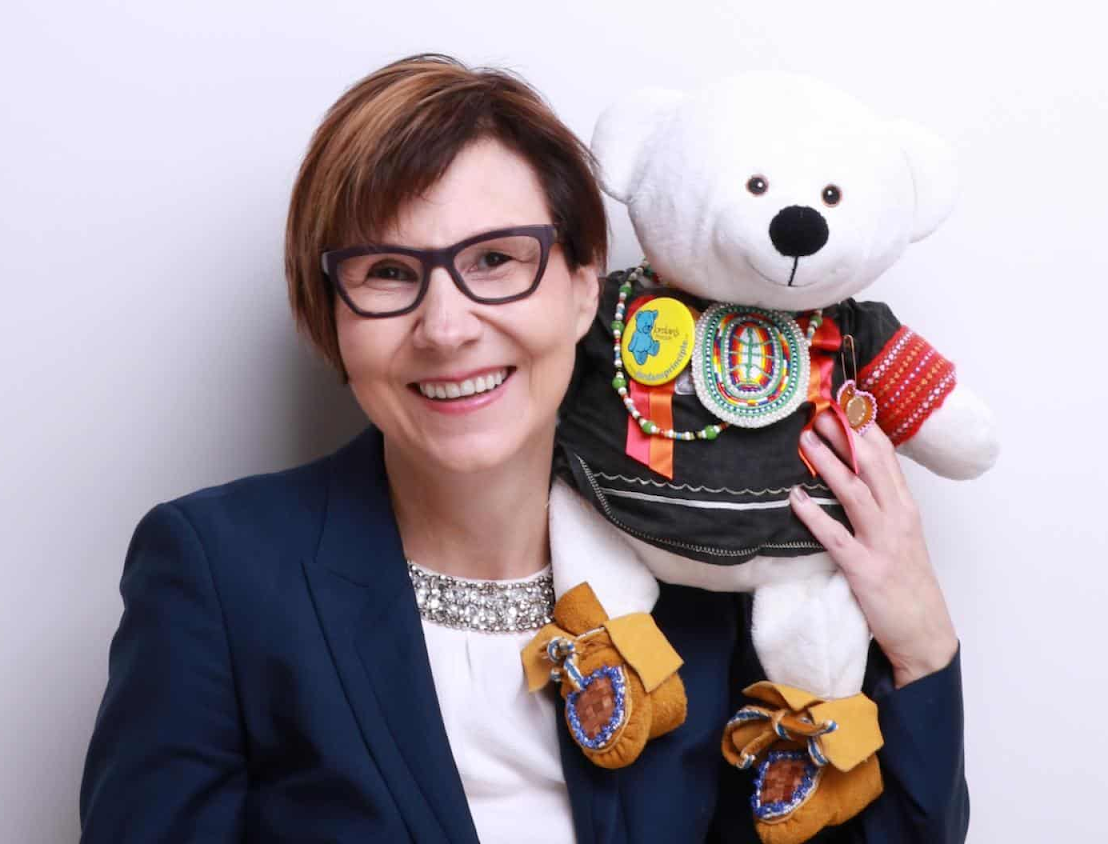Best known for her work with the First Nations Child and Family Caring Society, which filed a complaint under the Canadian Human Rights Act in 2007, Dr. Cindy Blackstock is a force to be reckoned with. Last month Ottawa announced plans to compensate First Nations children to the tune of $40 billion in efforts to reform Indigenous Child Welfare. We sat down with Dr. Blackstock, who is a member of the Gitxsan First Nation, currently serves as the executive director of the First Nations Child and Family Caring Society and is a professor of social work at McGill University. With a BA, two master’s degrees and a PhD in the works, a recipient of the Order of Canada, and co-author of the children’s book Spirit Bear and Children Make History, we thought you’d like to meet her, too. —Catherine Dunwoody
Hello Dr. Blackstock. Does Ottawa’s recent $40 billion agreement seem satisfactory to you?
This is a hopeful but non-binding agreement coming on the heels of over 20 legal orders to force Canada to end its discriminatory provision of public services to First Nations children and compensate victims of the discrimination. Canada has a long history—dating back to residential schools—of making grand promises and not delivering. This agreement is only for child and family services and Jordan’s Principle meaning inequalities in First Nations water, education, etcetera remain even if this agreement is fully implemented. In 2017, the Chiefs approved the Spirit Bear Plan to cost out and end all First Nations public service inequalities, but Canada has refused to adopt it. Other issues are that the current agreement is only for five years, and Canada is not saying what will happen in year six or what if it will provide more funding if independent research finds it to be insufficient.
Did you know in your own youth, that you wanted to create change and advocate for Indigenous Children? Was there an aha-moment that inspired you?
I grew up in the scared stiff school of public speaking so did I grow up believing in change, yes. In public speaking? No. I was like many people who saw the injustice and knew something needed to be done but I thought there had to be someone else out there better able to do it, so I waited around. I moved to action (and public speaking) when Health Canada told me that a First Nations boy whose standing frame was held together with duct tape would have to wait another three years because he got a wheelchair a few years prior. I explained children off reserve in the same circumstances would get help—they said they were not changing their policy.
What is your present role like, at McGill and otherwise?
Busy! I am a professor at McGill University and the executive director of the Caring Society. I am so grateful to First Nations and caring allies (including children and youth of all diversities) standing with First Nations children and families and the amazing Caring Society team and lawyers. Their collective work has made change.
What is a typical day off like for you? Any hobbies, passions, ways to relieve stress?
I love chatting with family and friends, baking, walking and travelling (in non-COVID times). The best way to keep stress away is to align my values with my actions—and I always have a store of Hawkins Cheezies and bath bombs in supply for days when I get crabby or stressed. I am a baker and a jam maker. I love making cookies, breads and all sorts of jam in the summer that I gift to Elders and other special folks.

Be the first to comment